Friedrich Nietzsche and Lou von Salomé, the myth of marriage proposals
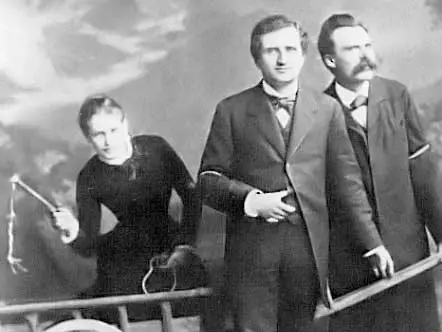

Friedrich Nietzsche and Lou von Salomé, the myth of marriage proposals
The following is not really a paradox as such, but rather falls into the category that I call ‘philosophy gossip’. It could still be thought of as a paradox, but then in the Greek sense of the word – something that is “contrary to common belief”. There is also a double paradox that is the result of the following analysis; though my primary aim here is to shed some light on a historical misrepresentation that continues to this day regarding the relationship between Friedrich Nietzsche and Lou Andreas-Salomé.
While going over some notes on Nietzsche’s biographical sketch for a separate project that I am involved in, it occurred to me that Nietzsche’s relationship with Lou Andreas-Salomé is still largely based on erroneous information that has persisted over the course of a century. What the reasons are, I am not sure. Perhaps, it is because a lot of contemporary introductions to his work still use old sources; perhaps, it is because there is an interesting anecdote that could be told in between the more serious philosophical thought while teaching undergraduates; or perhaps, it is just scholars being lazy and reproducing this gossip in order to fill up pages long enough to publish a book. Most probably, it is a combination of the three to some degree. It is in any event certain that the relationship between Nietzsche and Salomé had been deemed of more interest by scholars than, say, his relationship with Malwida von Meysenbug. This despite their friendship lasting from Nietzsche’s times as a student (in contrast, the relationship with Salomé took only a few sporadic meetings over the course of a few months).
Regardless of the reasons for erroneous reproduction of the relationship, the relationship itself nevertheless marks an important departure for some scholarly work. In particular, Nietzsche’s understanding of women, and indeed the often used metaphor of a woman in his work, comes under scrutiny based on this misrepresented historical event. And it seems to me that in order to take Nietzsche’s views on this topic (i.e. women) seriously, this myth has to be clarified and some errors corrected. It is my view that we have to dispel the ‘importance’ of this event altogether. Though, in my modesty, I should start with only clarifying why the unfortunate reproduction of the event is incorrect.
Historical background
Lou von Salomé met Paul Rée in Italy, and the two quickly became close. There is little evidence on the two being sexually involved, though they could be considered a ‘couple’. Nietzsche joined the two in May 1882 (on some accounts, their first meeting was late April of that year). He was invited by both Paul Rée and Malwida von Meysenbug to meet this bright young Russian woman, of whom von Meysenbug at least thought to be close to Nietzsche philosophically: “she strikes me as someone who has reached much the same philosophical conclusions as you” (in Janz 2,121 – sorry, but finding an English edition on Amazon is impossible).
That the two quickly found each other’s company of interest is certainly true, if we consider their letters to one another (some letters are below). At any rate, the three – Rée, Nietzsche and Salomé – (strictly speaking, it was four, as Salomé’s mother accompanied them) roamed Italy making plans for the winter. For most Nietzsche readers, the picture used in the heading is quite familiar. The implication of a ‘ménage à trois’ cannot be missed; and who knows, perhaps their were ‘plans’ of this to happen as well. But it should be stressed that the account of both Nietzsche and Salomé throughout 1882 confirms an intellectual ménage à trois, not a sexual one.
The myth of marriage proposals
The myth starts here, as allegedly Nietzsche proposed to marry Salomé. He did so twice (some claim he did so three times), first asking his friend Rée to do this on his behalf; and again, when he realised Rée to be his competition (who allegedly proposed to Salomé as well), and after they spent some time alone at Lake Orta, Nietzsche proposed to her in Lucerne (Luzern). He was, according to Salomé, desperately smitten with love, but these feelings were not mutual. This is how Salomé saw Nietzsche towards the end of their relationship:
In some deep dark corner of our beings, we are worlds apart. Nietzsche’s nature is like an old castle that conceals within it many a dark dungeon and hidden basement room, not apparent at first glance and yet likely to contain all the essentials. It is strange, but recently the idea suddenly struck me that we could wind up facing each other as enemies someday (in Safranski’s [amazon asin=0393323803&text=Nietzsche: A Philosophical Biography], p. 254-5).
What I posit here is twofold: 1) there is no contemporary evidence to support the marriage proposals by Nietzsche towards Salomé. The only sources start after Nietzsche’s death in Salomé’s letters; which, if we follow the letters between Nietzsche and Salomé, or from Nietzsche to his friends, can easily be discredited. 2) I also posit that the relationship was not based on love, but on intellectual merit that Nietzsche saw in Salomé. Nietzsche’s interest was in her academic mind, rather than a sexual interest.
Contemporary literature
I will get to the letters on which I base my conclusions briefly. Let us first look how the academics have perpetuated this myth up until the latest publications:
1. Carol Diethe’s [amazon asin=B00E0I9K0O&text=Historical Dictionary of Nietzscheanism], pp. 14f: “Nietzsche asked Rée to propose to Lou … on his behalf … He told the Overbecks about this new turn of events”. (I’m unable to find anything in Nietzsche’s letters to Overbecks regarding this; if you do, please let me know). The rest of the pages is based on nothing but speculation and conjectures, no actual proof of a proposal. To be sure, Diethe presents a more nuanced view in [amazon asin=3111782387&Nietzsche’s Women: Beyond the Whip], citing Ida Overbeck’s diary that claims Nietzsche’s worry that Lou may have the wrong impression: “Frau Overbeck, then, clearly refutes any suggestion that Nietzsche had proposed to Lou Salomé” (p. 50n). The analysis that follows, however, may as well have not. What is especially troublesome with Diethe is that the more nuanced version is published in 1996, while the historical dictionary is published in 2013!
2. The entire series of Nietzsche’s publications by Cambridge University Press, have a ‘Chronology’ section. Nietzsche’s [amazon asin=052169163X&text=Genealogy] is published under ‘History of Political Thought’, and unlike the others, states the following: “In Rome, Nietzsche proposes marriage, first via Rée and then in person. Although he is turned down, he is content with the promise of an intellectual ménage à trois made up of himself, Rée and Salomé”. This may be just sloppy (especially because other publications do not have this particular passage, but you’d expect more from CUP.
3. The otherwise great biography by Rüdiger Safranski, [amazon asin=0393323803&text=Nietzsche: A Philosophical Biography], leans too heavily on Salomé’s account of the events. Safranski too then concludes that the relationship was a romantic one, and that Nietzsche indeed proposed to Salomé. The same is to be said of [amazon asin=0521455758&text=Julian Young’s biography].
Similar claims are made in Ben McIntyre’s [amazon asin=B00B8S5FGC&text=Forgotten fatherland: the search for Elisabeth Nietzsche] (2013), Raymond Belliotti’s [amazon asin=9042036591&text=Jesus or Nietzsche] (2013), Hinton Thomas’ [amazon asin=Nietzsche in German politics and society&text=Nietzsche in German politics and society] (1986), Michael Tanner’s [amazon asin=0192854143&text=Nietzsche: a very short introduction] (2000), Paul Bishop’s [amazon asin=1571139303&text=A companion to Friedrich Nietzsche] (2012), etc..
The academic tradition online has not been doing any better. The European Graduate School perpetuates this myth: “the rejection of Lou Andreas-Salomé to his proposal of marriage … provoked a withdrawal of Nietzsche” (link).
So does the highly regarded Stanford Encyclopaedia of Philosophy: “[Lou eventually declines] to develop her relationship with Nietzsche on a romantic level” (Robert Wicks, link).
None of them actually base this on anything substantial than academic gossip (really, there are no sources linked to this claim in any of their works). An exception is Carol Diethe’s work, where she cites Ernst Pfeiffer’s Friendrich Nietzsche, Paul Rée, Lou von Salomé: Die Dokumente ihrer Begegnung (1970). But [amazon asin=2130358896&text=the book costs $333 on amazon], and I am not willing to spend that amount to verify one source (the letter in question is supposed to be on page 239; if someone has a copy, please send it to me). To be sure, one letter would not do, unless it is Nietzsche’s and it explicitly states his marriage proposal.
Evidence to the contrary
While most academic sources don’t use any sources (wow, irony… I think); unlike other sources that merely reproduce, with Safranski we have some evidence in form of letters. And it seems to me that Safranski is influenced by the myth in his interpretation. The letters that he cites can easily be read to point to lack of Nietzsche’s interest in Lou. Here are some of them:
1. To Paul Rée , prior meeting Lou:
Give that Russian girl my regards if that makes any sense: I lust after this kind of soul. Indeed, I plan to go on the prowl for one quite soon; considering what I wish to accomplish in the next ten years, I need one. Marriage is an altogether different story — I could agree only to a maximum of two years of marriage” (B 6,185f.).
This hint of marriage has been taken to mean Nietzsche’s readiness to settle (by Leventhal for instance). A similar letter regarding two years of marriage was written to Overbeck some days before. There is, of course, no reason to believe that half-hearted desire to get married also led to a proposal. But more importantly, perhaps Nietzsche hints towards two years in particular, because he had chosen a specific form of life – a nomadic philosopher who needs to be alone to accomplish what he takes to be his destiny.
2.1 To Peter Gast: “the ‘concept of a love affair’ did not apply in this case” (July 13,1882) .
2.2 To Malwida von Meysenbug (draft letter):
he defined the relationship as a ‘fast friendship.’ He called Salomé a ‘truly heroic soul,’ and expressed the wish ‘to gain a disciple in her, and if I should not live too much longer, an heir and successor’ (July 13,1882).
Strangely, Safeanski concluded that Nietzsche did not know what he wanted. But isn’t it more plausible that Nietzsche knew precisely what he wanted – a disciple, someone who actually understood him. That this relationship was based on friendship, an intellectual merit, and that the concept of love simply did not apply?
3. Or this letter to Lou herself, which leads to the strangest conclusions that Safranski makes:
I would greatly wish to be allowed to be your teacher. In the end, to be quite frank: I am looking for people who could be my heirs; some of the things that preoccupy me are not be to found in my books—and I am looking for the finest, most fertile ground for them (June 26, 1882).
Safranski’s conclusion could not miss the point more: “Salomé did not necessarily understand this letter to be a declaration of love — Nietzsche’s letters to her do not exactly brim over with eroticism.” It is strange how a letter declaring a wish for an intellectual heir could be read as an erotic one. Perhaps a more logical conclusion is to take Nietzsche’s ‘declaration of love’ for what it is, namely a declaration of an intellectual merit. Perhaps, indeed, Lou did not understand this letter to be a declaration of love, because it wasn’t. I think here Safranski’s ‘bias’ becomes clearest: he is led in his interpretation from a conviction that there was a love affair. Take this to be a supposition, and not a fact, a the whole story falls apart.
More evidence to the contrary
The point with these letters is exactly to show how a certain myth, once it has become commonly accepted, takes over the conclusions that are more rational. Isn’t it more plausible that Nietzsche simply did not propose to Lou – indeed, that he was only interested in her in an intellectual way? There is no mention of Nietzsche’s proposal in his letters. Certainly, there is a feeling of despair after Rée and Salomé abandon him, as would be a normal reaction when friends you develop a close relationship to and make plans with abandon you. So it is only normal that some of his poems change in title (e.g. ‘To Lou’ is changed into ‘To the Sea’ – I am not sure about the ‘new’ title). But there is no evidence of a marriage proposal.
To be sure, I’m not trying to redeem Nietzsche of some stupidity. I’ll easily admit that he did, for instance, purpose to Mathilde Trampedach in 1876, which under today’s circumstances would be equally ‘inappropriate’ (he proposed to her only some hours after meeting her for the first time). What I will also admit is that perhaps I am over defensive of Nietzsche, and indeed for a while I thought I was. But then I stumbled over this passage in Walter Kaufmann’s [amazon asin=0691160260&text=Nietzsche: Philosopher, Psychologist, Antichrist]:
After Rée’s death, Lou spread the tale that both he and Nietzsche had proposed marriage to her, and that Nietzsche had asked Rée to transmit his proposal. Others embellished the story by adding that, unknown to Nietzsche, she was Rée’s mistress even then. Binion has shown that she remained a virgin until more than ten years later and that Nietzsche never proposed marriage to her, although she was apparently waiting for him to do so (1974, pp. 50-51).
To be clear, Kaufmann write this over forty years ago. By now, academia should have caught up.
And what does Binion say, you ask?
No evidence beyond Lou’s say-so will ever turn up that Gillot or Nietzsche proposed to her. And no say-so of hers in either case will ever turn up antedating Ruth and Im Kampf um Gott respectively—or for that matter antedating either putative suitor’s death ([amazon asin=0691618607&text=Frau Lou: Nietzsche’s Wayward Disciple], 2015, p. 504).
Binion in fact exposes several of Salomé’s lies, but that’s besides the point here.
Why does this matter?
This particular event had been taken very seriously by some Nietzsche scholars. For some reason his affair with Salomé is thought of as being a turning point. He writes Zarathustra after the whole affair. He is depicted as a lonely, isolated, roaming philosopher. What is misunderstood in this depiction is that perhaps this was a conscious decision, not as a result of an unexpected circumstance; or the turning point may have been due to a rejection of friendship, not love – or at least not that kind of love (so in Greek, rejection of Philia, not Agape or Eros). The point is that a more appropriate analysis would simply admit to speculation. With this in mind, there are two points I would like to emphasise:
1. Salomé’s account of Nietzsche in [amazon asin=1271025612&text=Im Kampf um Gott] and In der Schule bei Freud (The Freud Journal) should at least be questioned, and claims verified. The book is certainly entertaining, and I am not suggesting that the whole book is entirely fictitious. It has a value as it remains one of the very few consistent and contemporary accounts by one person on Nietzsche. All I’m advocating is caution, given an embellishment of an event (and by embellishment I of course mean a lie). We should, in other words, be careful in our judgement of Nietzsche’s character when using this particular source. And Nietzsche’s character, to be sure, matters! As he points out himself, the author and the work are united (source).
2. More importantly, there is a recurring interest in Nietzsche’s relationship with women to understand his philosophy. And a lot of this work supposes his relationship with Lou von Salomé to be formative of his views. We should not, however, fall into the ‘biographical fallacy’ [sidenote: this would make a great next article] and be blinded by thinking of Nietzsche as naive in some sense because of this particular relationship with Salomé. To be sure, I’m not claiming that all scholarly work on this particular topic is void of meaning because of a misrepresentation of an event. I have already mentioned Carol Diethe’s work, for instance, which has some very interesting insights (even though I don’t agree with the conclusions). Rather, I’m only suggesting that they should be revisited (by the reader as well as the author), and given the fictitious character of the event, they should question whether the argument still sticks. As I am sure they will find, sometimes it does, but sometimes it also doesn’t.
Now if I were a good scholar, I would end with a proper bibliographical list. I am a good scholar, but I cannot use Endnote on WordPress, so hopefully you will forgive me for just copy-pasting the titles of the works cited. You can order them from Amazon below if you wish; despite my critique, these works are worth reading (in fact, works on Nietzsche that are not worth reading are not included). Make sure you are viewing the Nietzsche category and not the general one. But as always, it is best to read the original and decide for yourself.
Sign up for Paradox of the Day mailing list and please visit our Patreon support page.

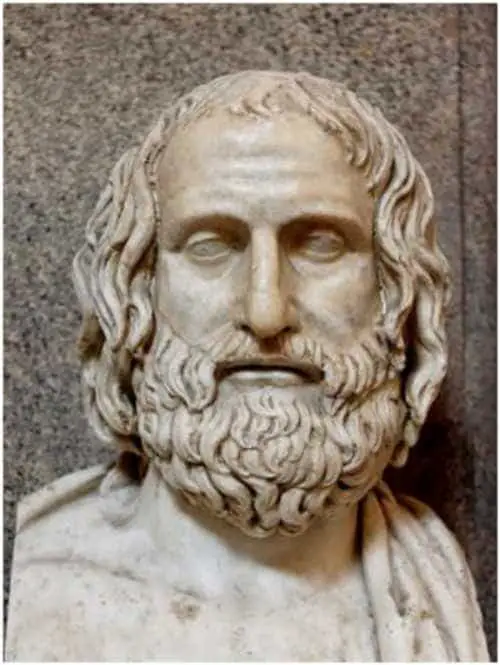

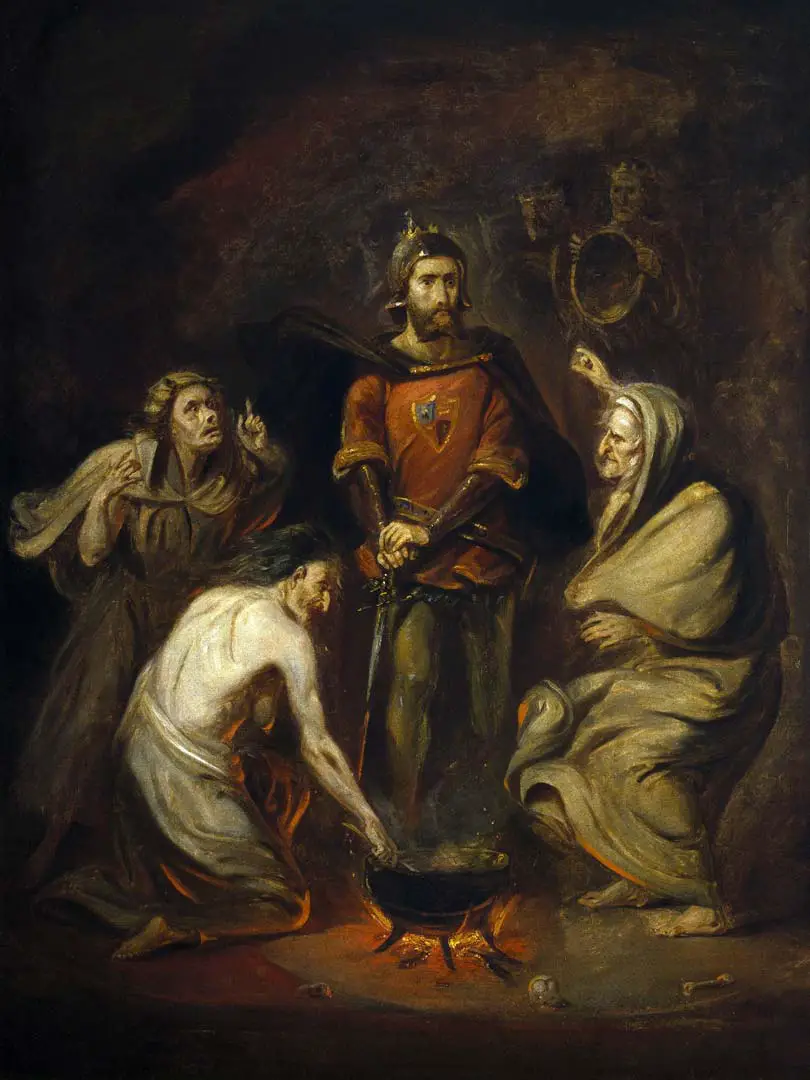
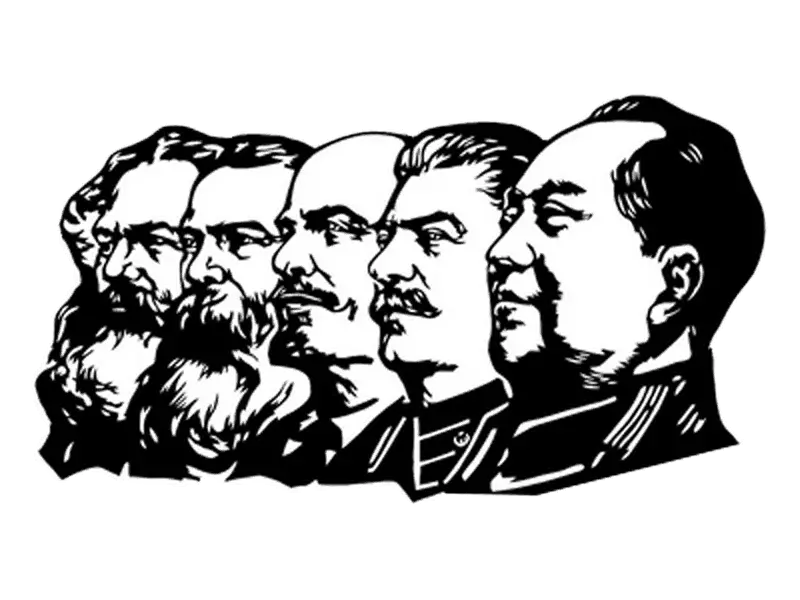
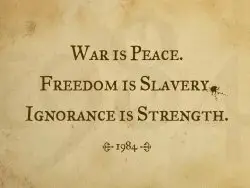

Who is the author of this piece?
Congratulations on your attempt to smash this myth created by Salomé, who was obsessed with a fantasy of men proposing marriage to her. She embellished it with an image of leaving behind such men, on their knees, with their fantasised passion for her unrequited. For once, Nietzsche’s sister was correct in her appraisal of Salomé yet it was her who took the blame.
I am the author. Thank you for the comment 🙂
I’m still not clear what is your name and who you are.
Here is the lnk to my blog with further links to many publications on Nietzsche:
emcybulska.blogspot.com/
Hi, sorry. Should have been clearer. I write under the pen name of Ippolit Belinski, i recently finished my PhD in philosophy and now teach at a university in UK. I’m still looking for a position involving research so i can focus more on publishing. I’ll make sure to have a look at your blog too.
Edit: Took a look at your blog – Augen-blick is a nice little poem. Very much to my liking in style and content.
I had come across some of your Nietzsche diagnosis before. Not saying that i don’t agree, but i do fail to see how, say, bipolar disorder, improves our interpretations or views of Nietzsche’s philosophy. Accepting of course that Nietzsche himself would be the first to acknowledge the importance of the philosopher to their philosophy. Elaborating from your side is welcome.
Why do yo need to hide behind the mask of Ippolit?
I’m not interested in communicating with phantoms, hence it it my last reply to you in this forum. Unless you have the guts and integrity to own up to your views in your authentic name.
Well… I suggest you reread Ecce Homo (and some passages in BGE) – masks are not only inevitable, they are new encounters – they do not only conceal, they are possibilities of new power relations. Ultimately, authenticity is not in a name. But as you will, if that is the deal breaker, so it will break.
Drugs, massive doses of choral hydrate extremely hypnotic states of mind, leading to horrendous withdrawal, habituation, opium habit plus copious prescriptions in his own hand for god knows what. FN was a junkie.